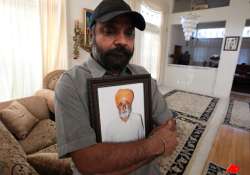Post-9/11, Sikhs In US Say They Are Mistaken Targets
Elk Grove (Calif), Jul 12: Kamaljit Atwal's neighbourhood seems like an unlikely place for a hate crime. His street in this Sacramento suburb seems a model of diversity.Atwal and his family are one of two

Elk Grove (Calif), Jul 12: Kamaljit Atwal's neighbourhood seems like an unlikely place for a hate crime. His street in this Sacramento suburb seems a model of diversity.
Atwal and his family are one of two Sikh families on the block from India. On Atwal's street alone, there's a Vietnamese family, a Mexican family, a black woman and a white man.
But in March, Atwal's 78-year-old father Gurmej Atwal and his 67-year-old friend Surinder Singh were shot and killed while taking an afternoon stroll in the neighbourhood. Atwal and his fellow Sikhs in the area wonder if the same ugliness that has brought violence to other Sikhs is the reason why.
The men had long beards and were wearing turbans, both traditional symbols of their religion. Police are investigating whether their killing was a hate crime. “It's a complete case of mistaken identity,” said Rajdeep Singh of the Washington, DC-based Sikh Coalition, which is the largest Sikh civil rights group in the US.
“When people look at me with a turban and beard, the first thing that comes to mind is, ‘That guy looks like Osama bin Laden.' “ Since the September 11, 2001, attacks, Sikhs have reported a rise in bias attacks, both verbal and physical, against them.
The backlash that hit Muslims across the country has expanded to include them and their faith as well, with some assuming the sight of a long beard and turbaned head can only mean one thing.
Kamajit Atwal said life used to be peaceful for him, his wife and their three children since moving to his quiet suburban block in 2003. Crime has gone down for four years in a row, in Elk Grove, where about 54 percent of its 153,000 residents are nonwhite. AP